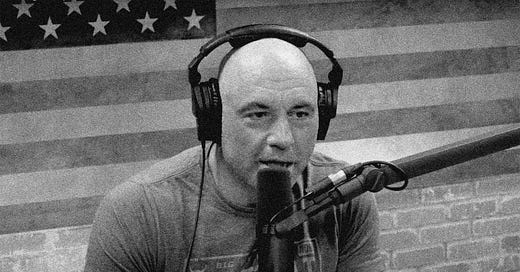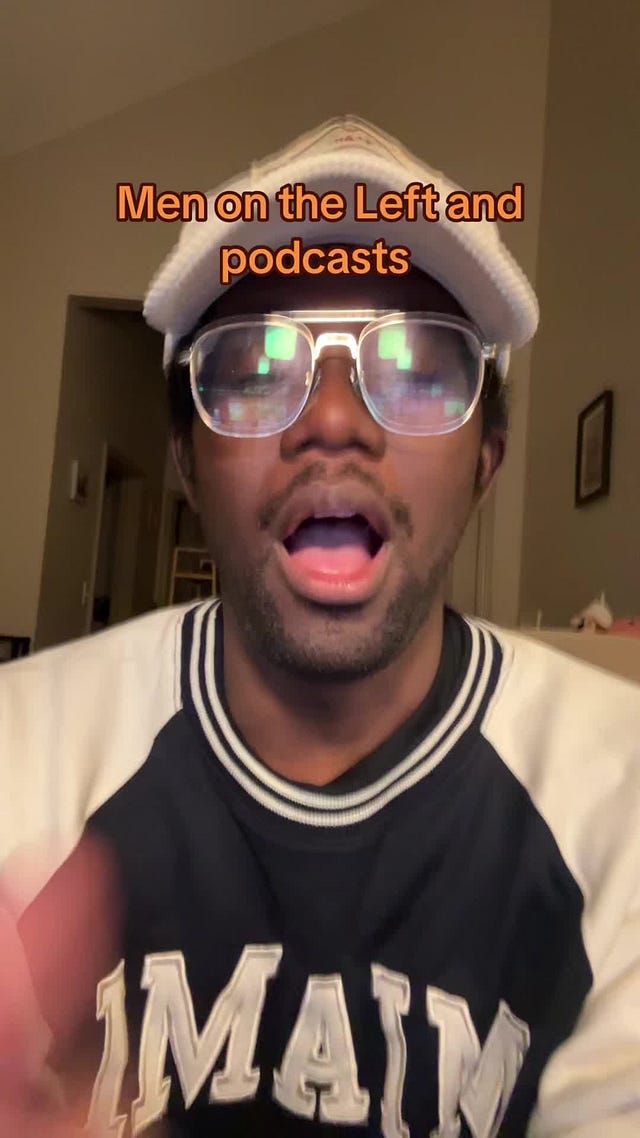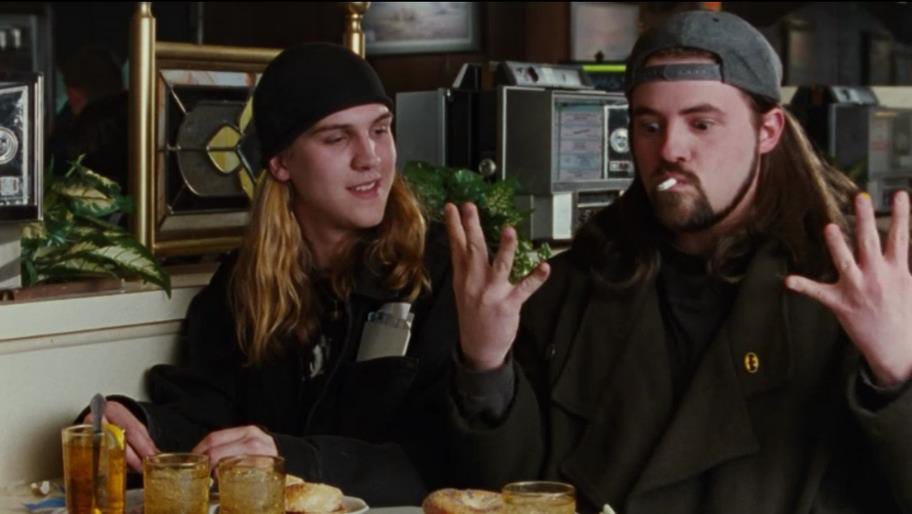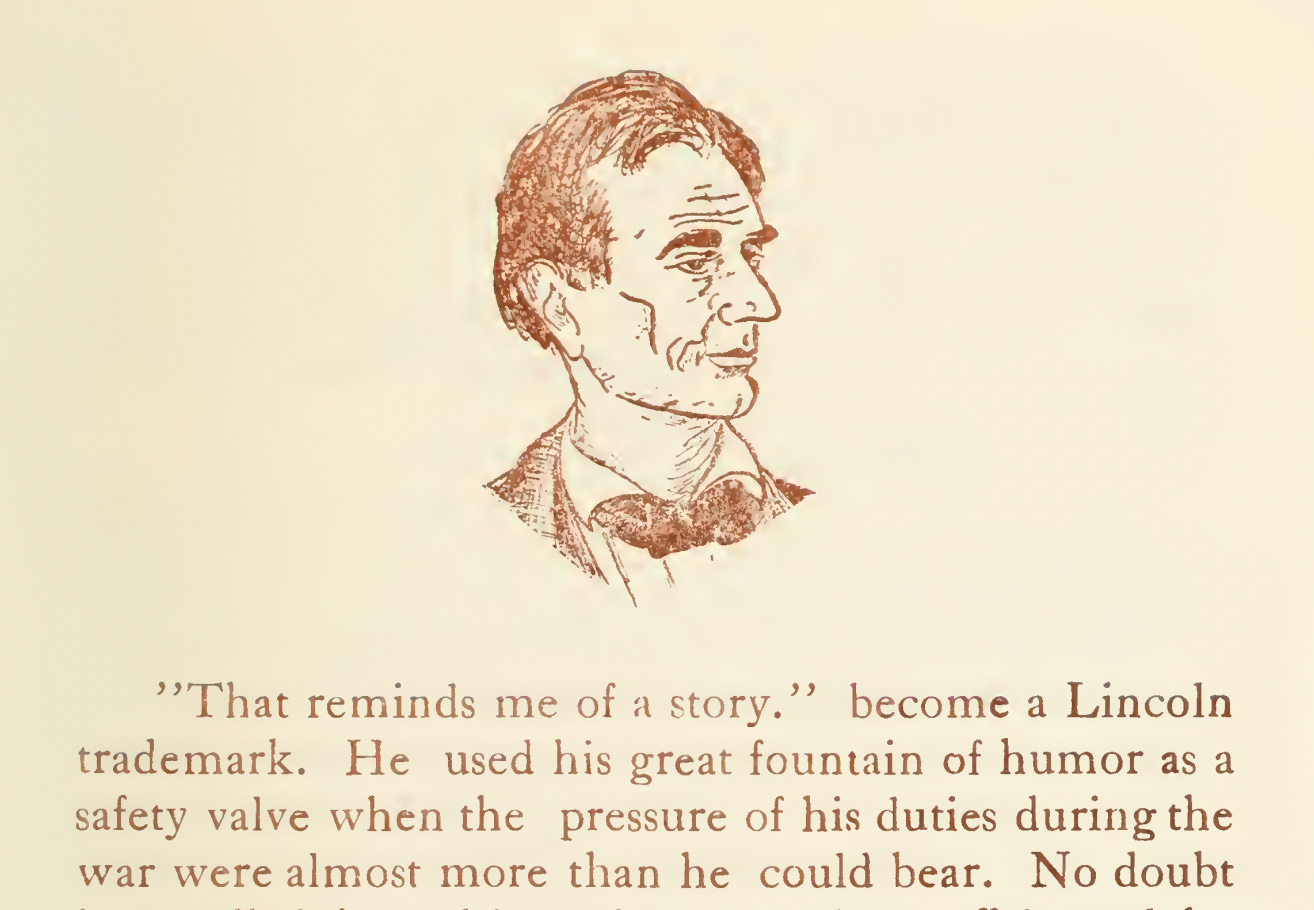In case you missed it, I already wrote about my initial thoughts on the Presidential election results last week. You can read them here if you are upgraded as a paid member.
THE JOKE goes that when Republicans lose, they blame the Democrats. When Democrats lose, they blame themselves. Although I’m seeing a modicum of conspiracy-theory energy around how the Left lost 15 million voters, many liberals have been engaging in some self-reflection (if not self-flagellation) this week over their oversights leading up to the Presidential race.
It’s been seven days since Donald J. Trump decidedly won his way back into the White House (and our daily discourse for the next four years), but there are already a few trends taking place in the culture, most notably amongst the Left. For one, I see a reexamination of identity politics. Two, the Democratic Party is wondering how they got the Latino-American population so wrong. And finally, you’re seeing a lot of conversation around men and podcasts.
I touched on this in my last MONOLOGUE, but in terms of male podcasting culture, liberals have been missing the mark for years. Whether or not it was a smart choice for Kamala to decline The Joe Rogan Experience, the Left has held a great deal of contempt for this brand of talk show, even up until Joe Rogan’s endorsement of Trump on Election Eve. Then, literally overnight, Democrats sobered up to the power and influence of male podcasters and streamers. On Meta’s Threads, which is siloed as a Liberal echo chamber foil to Elon Musk’s X, anxious Dems are finally asking, “What is the Left’s response to these types of personalities?”
 Tiktok failed to load.
Tiktok failed to load.Enable 3rd party cookies or use another browser
And yet, they still get it wrong. Threaders are suggesting Barack Obama as a counter voice or Dallas Mavericks owner Mark Cuban as a direct line to male audiences. They are seeking the political rejoinder to a perceived Right-wing, racist, misogynist threat. What they are missing, entirely, is that Joe Rogan’s background is not as a political pundit or an expert on social issues. Joe Rogan is a stand-up comedian.
Theo Von, another Top 10 (U.S.) podcast host who discussed cocaine use with the next President, is also a comedian. Adin Ross, one of the most popular Gen Z streamers who Trump thanked in his victory speech, is not a stand-up comic. But his appeal with the youth is that he’s funny. And not the John Oliver cerebral type of funny. But the philistine, uncool, dunkable funny that channels a Chunk from Goonies or a Jonah Hill from Superbad. Every guy group has a friend like that. He’s the lovable loser that you laugh at, just as you much laugh with. In other words, he’s real. And he’s relatable.
The Right Wing social algorithm has been a powerful social factor for the last decade, ever since YouTube directed men down Ben Shapiro and Jordan Petersen worm-holes. But for this new generation of talk shows and livestreams, none of these guys (Nelk Boys, the Paul Brothers) set out to become political commentators. They were Jackass jokesters and bro trolls that attracted subscribers through pranks, bathroom humor, and shock value. In other words, they were immature boys testing the limits of social appropriateness through off-color humor.
When I was a kid, we had treeforts and Boys Only clubhouses to read Big Brother magazine. As a teenager, I had Kevin Smith’s movies to pilot me through this stage of adolescence. The next generation had Seth Rogen’s gang, the Frat Pack, and the Hangover trilogy. The Trump class of comedians, however, was born into — or a product of — the fourth awokening, the latest iteration of Political Correctness that comprises the MeToo movement, BLM, and DEI. For some, they woke up one day to find themselves on the Right side of the line. For others, they identified more closely with the conservative party’s softer borders around speech and humor.
The irony, of course, is that comedy has historically been a fertile playground for the Democrats. I didn’t have to go too far in my research to see that only one decade ago, the media thinkpieces were asking the exact opposite: Why are Republicans so unfunny? Who is the conservative answer for Jon Stewart? In the past, Democrats dominated Saturday Night Live and the late night talk shows while Republicans were humored by potatoes like Rush Limbaugh and Mitt Romney.
Studies have shown, however, that although there may be innate, biological differences between liberals and conservatives, one political persuasion isn’t necessarily funnier than the other. Liberals tend to enjoy more inclusive humor while conservatives lean towards comedy that delineates “others” and punches down. Democrats laughed at jokes about fairness while Republicans partook in comedy about deservedness. But generally, when it comes to politics and comedy, it appears our sense of humor stays in the same place. What changes are the goalpost placements around it.
Back in 2012, author Alison Dagnes published a new book entitled A Conservative Walks Into a Bar: The Politics of Political Humor. She wrote, “When satire works, it's always anti-establishment. And that's not very conservative." But the political landscape has swung in the 12 years since. Today, it can be argued that many of the Democratic Party’s ideologies have become mainstream. Or maybe the “establishment” is the institutions overall (Last night, I was watching AOC’s Instagram Stories and she was fielding DMs from followers who had voted for both she and Donald Trump. Their reasoning? Both the House Representative activist and the conservative leader were seen as outsiders).
Even the boundaries around Jon Stewart shifted. By 2022, the new op-eds were asking, “What Happened to Jon Stewart?” According to The Atlantic, America started looking at the comedian differently when they realized that — although he entered the scene as a disruptive neophyte — his tone changed as his career progressed. Now, “he’s not even trying to be funny. When you take the comedy out of topical comedy … you become … the media.” The media: another institution under siege.
Last night, AOC also asked her followers where they get their news. The Democrats answered as expected: Mainstream media, The New York Times, cable news. The Republicans responded with independent, unaffiliated voices like X/Twitter, Tim Pool, and Jimmy Dor. If the Left’s portrayal of comedy is conflated with the media, and Americans’ trust in the media is at an all time low, then you can see how we arrive in an Upside Down where Jon Stewart’s jokes fall flat.
The funniest President of all time was Abraham Lincoln, our 16th Commander-in-Chief, and a Republican. Although his values may be aligned with modern wokeism, he was considered an outsider to Washington, reviled by both parties, and was noted for jokes that were in questionable taste, if not offensive. Lincoln often used them as a young lawyer to win over juries. In fact, “Many of his jurors could neither read nor write and his crude jokes, or fables as we might call them, made plain to the frontiersmen the meaning of the law and nature of the case.”
The Democratic Party wants to win over the hearts and minds of American men (or, at the least, make plain to them the meaning of the law and the nature of the case). But are they willing to rewrite their jokes and draw up new goalposts around their comedy? Men are lonelier than ever and they’re filling their (para)social lives with Kai Cenats and Tony Hinchcliffes over Chunks and Jonah Hills. I think we could see a liberal podcaster/streamer that could rival Joe Rogan, but only if we allow them to be a friend first and offend some people in the process.
In a Politico interview regarding his book, That’s Not Funny: How the Right Makes Comedy Work for Them, Boston College professor Matt Sienkewicz says:
“There’s a careful line there. There are still ethical implications to truly hateful comments, and I’m not defending that. But yes, I think that if there’s even the perception of being able to be adventurous and laugh and not get worried about what happens to you because you laugh — if that is perceived to be a strength on the right, then it’s by definition a deficiency on the left. And do I think that could swing elections local and national? I do.”
That interview took place two years ago.










Sooooo, how about doing a podcast, Bobby?